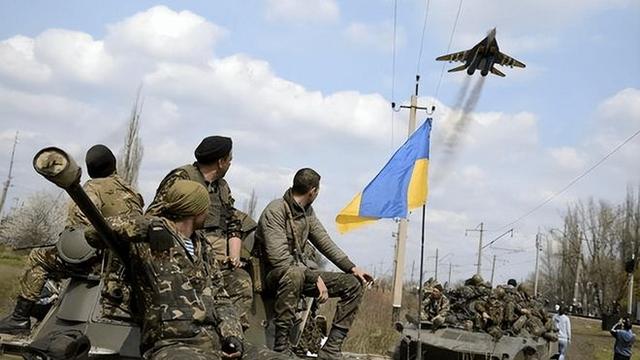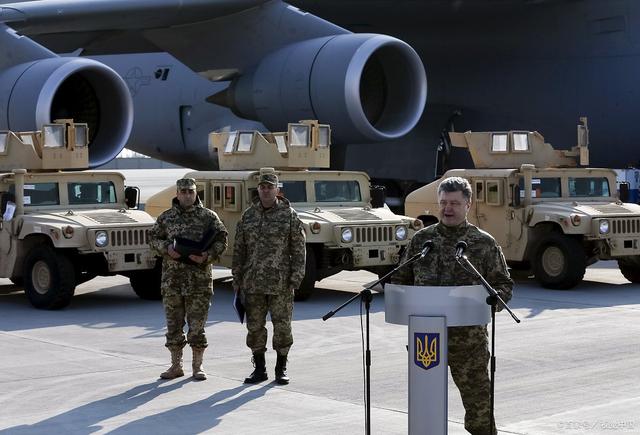The recent announcement by the U.S. regarding the final package of military aid to Ukraine has sparked a significant amount of discussion and debate.
The decision to provide Ukraine with weapons worth up to $250 million has raised questions about the future of military assistance to the country, particularly in light of the stalled supplemental funding legislation in Congress.
The weapons included in the aid package encompass a wide range of military equipment, such as air munitions, missiles, artillery, anti-armor systems, ammunition, demolition and medical equipment, and parts.
This comprehensive array of weaponry is intended to bolster Ukraine’s defense capabilities and support its efforts to counter ongoing security challenges.
It is important to note that the aid is being provided through the Presidential Drawdown Authority, which allows for the utilization of existing Pentagon stockpiles.
However, the statement from Marine Lt. Col. Garron Garn, a Pentagon spokesman, has emphasized that there is no additional funding available to replace the weapons taken from department stocks.
This raises concerns about the sustainability of future military aid to Ukraine, especially in the absence of long-term funding through initiatives such as the Ukraine Security Assistance Initiative.
The implications of this announcement are significant, as they underscore the complexities and challenges associated with providing military assistance to Ukraine.
The ongoing conflict in the region has placed a considerable strain on Ukraine’s military resources, and the need for continued support from the U.S. and its allies remains a pressing concern.
The decision to allocate this final package of military aid to Ukraine raises broader questions about the U.S. government’s strategic approach to supporting its allies and partners in the face of evolving security threats.
The current impasse in Congress over supplemental funding legislation further complicates the situation, as it introduces uncertainty regarding the availability of future resources for military aid programs.
In light of these developments, it is imperative for policymakers to carefully consider the implications of the current funding constraints on military aid to Ukraine.
The strategic importance of supporting Ukraine’s defense capabilities and bolstering its resilience in the face of external aggression cannot be overstated, and it is essential for the U.S. to demonstrate its commitment to upholding international security and stability.
As discussions continue regarding the future of military aid to Ukraine, it is crucial for all stakeholders to prioritize the security and well-being of the Ukrainian people.
The U.S. has a vested interest in supporting Ukraine’s efforts to defend its sovereignty and territorial integrity, and it is incumbent upon policymakers to ensure that the necessary resources are made available to address the country’s security needs.
In conclusion, the recent announcement of the final package of military aid to Ukraine has generated considerable attention and raised important questions about the future of U.S. support for the country’s defense capabilities.
The complexities surrounding the allocation of military assistance and the challenges posed by funding constraints underscore the need for a comprehensive and strategic approach to addressing Ukraine’s security needs.
As the situation continues to evolve, it is imperative for policymakers to prioritize the security and stability of Ukraine and to work towards ensuring that the necessary resources are available to support the country’s defense efforts.
The allocation of military aid and its impact on national security is a matter of significant concern and debate in the current political landscape.
The recent statement by Garn highlights the potential consequences of a shortfall in replenishing U.S. military stocks, emphasizing the critical role of supplemental funding in maintaining American military readiness.
President Joe Biden’s call for a $110 billion aid package for Ukraine, Israel, and other national security needs underscores the urgency of addressing these issues.
The breakdown of the proposed aid package reveals a focus on specific geopolitical priorities. With $61.4 billion earmarked for Ukraine, including a substantial portion dedicated to replenishing Pentagon stocks, and additional allocations for Israel’s conflict with Hamas and U.S. border security, the package reflects a strategic distribution of resources to address pressing security concerns.
Furthermore, the inclusion of funds for security needs in the Asia-Pacific region underscores the broader scope of the proposed aid package.

However, the revelation of an accounting error leading to a $4.2 billion overvaluation of weapons sent to Ukraine raises questions about the accuracy and oversight of military aid distribution.
The implications of this error, coupled with the lack of available funds to replenish inventory sent to Kyiv, necessitate a thorough reassessment of future aid allocations and their potential impact on U.S. military capabilities.
Garn’s assertion regarding the need for a rigorous assessment of future aid reflects the gravity of the situation and the imperative to safeguard America’s defense capabilities.
The recurrent nature of military aid tranches sent to Ukraine, exemplified by the 54th tranche, underscores the sustained commitment to supporting Ukraine’s defense efforts.
The consistency in size and contents of these aid packages signals a strategic approach to bolstering Ukraine’s defense capabilities in the face of ongoing geopolitical challenges.
The argument put forth by U.S. defense and government leaders regarding the critical importance of these weapons for Ukraine’s defense and its ability to counter Russian forces during the winter months underscores the strategic significance of the aid packages.
In conclusion, the discourse surrounding military aid allocation and its impact on national security underscores the complex interplay of geopolitical priorities, strategic considerations, and fiscal accountability.
The proposed aid package for Ukraine, Israel, and other security needs reflects a targeted approach to addressing pressing global challenges.
However, the revelation of an accounting error and the potential shortfall in replenishing U.S. military stocks necessitate a comprehensive reassessment of aid distribution and its implications for American military readiness.
As the debate unfolds, it is imperative to prioritize the safeguarding of national security interests while ensuring the responsible allocation of resources.
In a recent Pentagon briefing, Air Force Maj. Gen. Pat Ryder highlighted the concerning issue of the Defense Department’s dwindling replenishment funds.
The Defense Department comptroller had sent a letter to Congress, warning that the United States would exhaust its funding for providing security assistance to Ukraine by the end of the year.
Ryder emphasized the urgency of the situation, stating that once the funds are obligated, there would be no more resources available to support Ukraine.
He stressed the importance of passing the supplemental funding that had been submitted to ensure that Ukraine receives the necessary battlefield capabilities.
This plea for additional funding comes at a critical time as the conflict in Ukraine continues to escalate. The war, now in its 22nd month, has seen increased aggression from Russia, including the firing of almost 50 Shahed drones at Ukrainian targets and the shelling of a train station in Kherson, where over 100 civilians had gathered.
Additionally, Ukrainian warplanes recently damaged a Russian ship in the Black Sea off Crimea, highlighting the ongoing struggle for control along the front lines.
The situation in Ukraine underscores the need for continued support from the United States and its allies. The conflict has resulted in significant humanitarian and security concerns, and it is imperative that Ukraine receives the assistance it requires to defend itself and its citizens.
The United States has a vested interest in supporting Ukraine, not only for the sake of the Ukrainian people but also for the broader implications of the conflict.
The ongoing aggression from Russia poses a threat to regional stability and security, and it is crucial that the international community stands in solidarity with Ukraine.

The depletion of funds for security assistance to Ukraine is a concerning development, and it underscores the need for swift action from Congress to approve the supplemental funding.
The United States has a responsibility to uphold its commitments to its allies and to support those who are facing aggression and conflict.
In conclusion, the situation in Ukraine demands immediate attention and action. The United States must prioritize the approval of additional funding to ensure that Ukraine receives the necessary support to defend itself.
The conflict in Ukraine has far-reaching implications, and it is essential that the international community stands united in support of Ukraine’s sovereignty and security.
